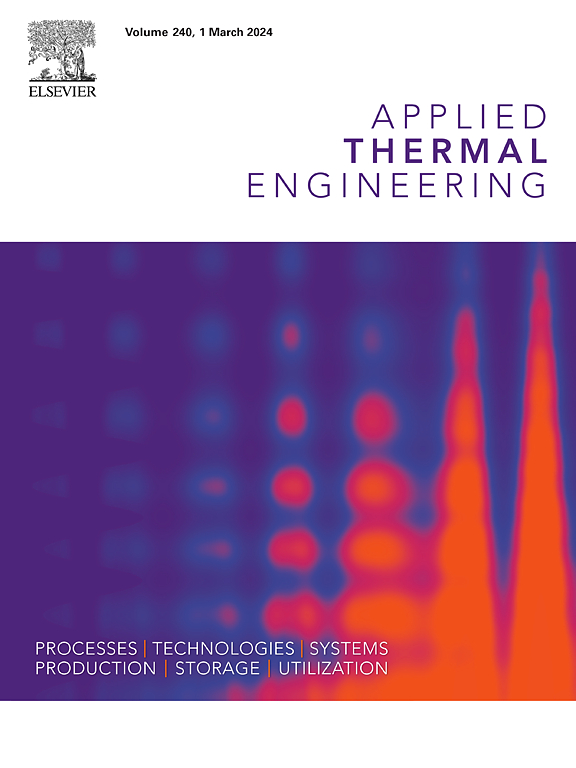Optimal dispatch of storage-assisted thermal power considering renewable uncertainties
IF 6.1
2区 工程技术
Q2 ENERGY & FUELS
引用次数: 0
Abstract
Energy storage systems have emerged as critical components in modern power systems, addressing the challenges of frequency regulation stability and renewable integration. Coal-fired thermal power plants have provided grid stability but now confront increasing demands for deep peak shaving services. However, energy storage systems are exposed to relatively low energy support duration while thermal power units confront slow power changing rate. This paper proposes a coordinated control strategy and a robust optimization model for storage-assisted thermal power units, addressing short-term fluctuations and long-term uncertainties imposed on thermal power units across multiple timescales. The Column-and-Constraint Generation approach is employed to improve computational efficiency, achieving convergence within three iterations for the optimal solution. Simulation results confirm that the proposed uncertainty set effectively adapts to increasing data dimensions, addressing over-conservatism in traditional models subject to multi-timescale uncertainties. By leveraging the rapid response capability of energy storage and the steady output of thermal power units, the model improves grid support and alleviates operational stress on thermal units. The results also reveal that three different energy storage systems configurations result in cost reductions of 23.50%, 41.78%, and 38.63%, respectively, while demonstrating a substantial improvement in the system’s resilience in response to short- and long-term challenges.
考虑可再生能源不确定性的蓄热发电优化调度
储能系统已成为现代电力系统的关键组成部分,解决了频率调节稳定性和可再生能源集成的挑战。燃煤火力发电厂为电网提供了稳定性,但现在面临着对深度调峰服务日益增长的需求。然而,储能系统的能量支撑时间较短,火电机组的功率变化率较慢。针对蓄电辅助火电机组在多个时间尺度上的短期波动和长期不确定性,提出了蓄电辅助火电机组的协调控制策略和鲁棒优化模型。采用列约束生成方法提高计算效率,在三次迭代内实现最优解的收敛。仿真结果表明,所提出的不确定性集能有效地适应不断增加的数据维数,解决了传统模型在多时间尺度不确定性下的过度保守性问题。该模型利用储能的快速响应能力和火电机组的稳定输出,提高了电网的支撑能力,减轻了火电机组的运行压力。结果还表明,三种不同的储能系统配置分别降低了23.50%,41.78%和38.63%的成本,同时显示了系统应对短期和长期挑战的弹性大幅提高。
本文章由计算机程序翻译,如有差异,请以英文原文为准。
求助全文
约1分钟内获得全文
求助全文
来源期刊

Applied Thermal Engineering
工程技术-工程:机械
CiteScore
11.30
自引率
15.60%
发文量
1474
审稿时长
57 days
期刊介绍:
Applied Thermal Engineering disseminates novel research related to the design, development and demonstration of components, devices, equipment, technologies and systems involving thermal processes for the production, storage, utilization and conservation of energy, with a focus on engineering application.
The journal publishes high-quality and high-impact Original Research Articles, Review Articles, Short Communications and Letters to the Editor on cutting-edge innovations in research, and recent advances or issues of interest to the thermal engineering community.
 求助内容:
求助内容: 应助结果提醒方式:
应助结果提醒方式:


